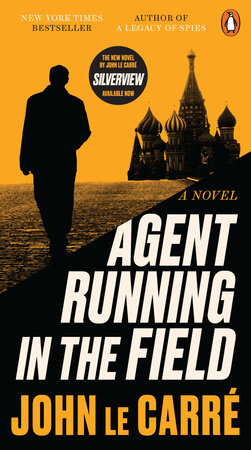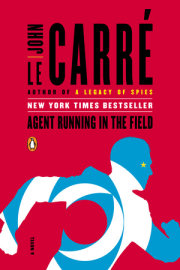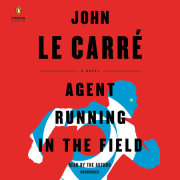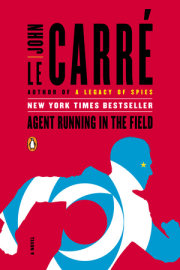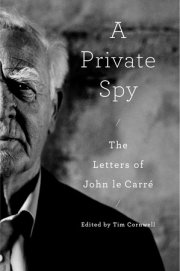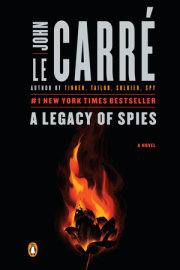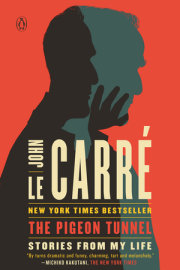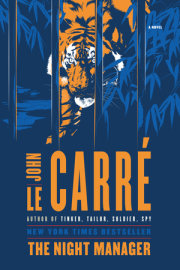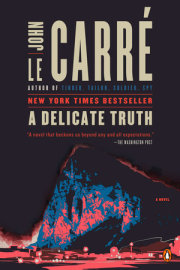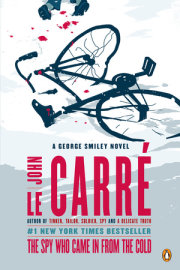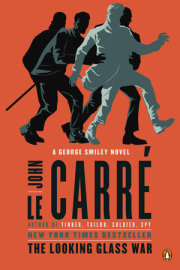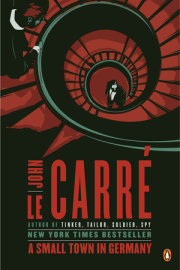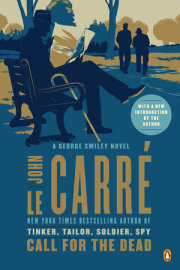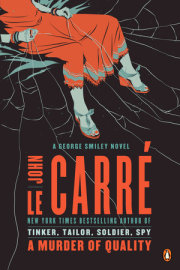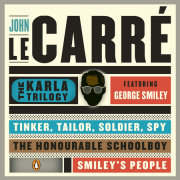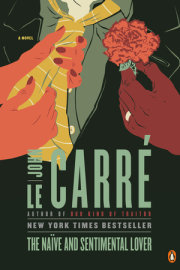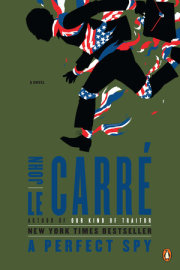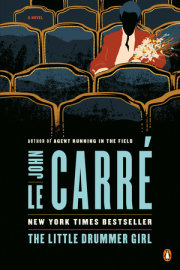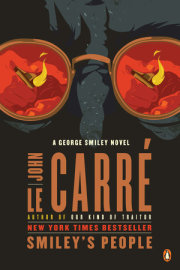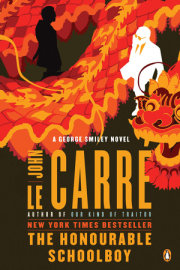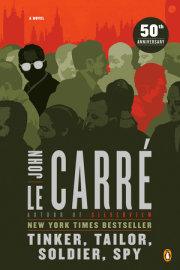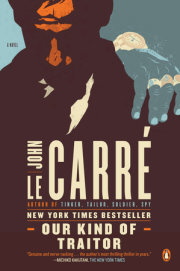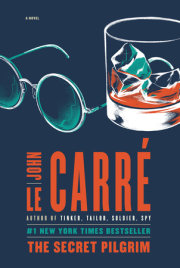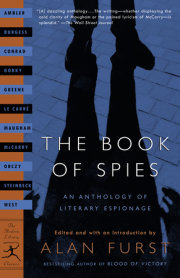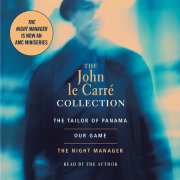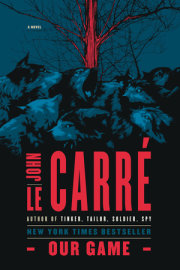1
Our meeting was not contrived. Not by me, not by Ed, not by any of the hidden hands supposedly pulling at his strings. I was not targeted. Ed was not put up to it. We were neither covertly nor aggressively observed. He issued a sporting challenge. I accepted it. We played. There was no contrivance, no conspiracy, no collusion. There are events in my life - only a few these days, it's true - that admit of one version only. Our meeting is such an event. My telling of it never wavered in all the times they made me repeat it.
It is a Saturday evening. I am sitting in the Athleticus Club in Battersea, of which I am Honorary Secretary, a largely meaningless title, in an upholstered deckchair beside the indoor swimming pool. The clubroom is cavernous and high-raftered, part of a converted brewery, with the pool at one end and a bar at the other, and a passageway between the two that leads to the segregated changing rooms and shower areas.
In facing the pool I am at an oblique angle to the bar. Beyond the bar lies the entrance to the clubroom, then the lobby, then the doorway to the street. I am thus not in a position to see who is entering the clubroom or who is hanging around in the lobby reading notices, booking courts or putting their names on the Club ladder. The bar is doing brisk trade. Young girls and their swains splash and chatter.
I am wearing my badminton kit: shorts, sweatshirt and a new pair of ankle-friendly trainers. I bought them to fend off a niggling pain in my left ankle incurred on a ramble in the forests of Estonia a month previously. After prolonged back-to-back stints overseas I am savouring a well-deserved spell of home leave. A cloud looms over my professional life that I am doing my best to ignore. On Monday I expect to be declared redundant. Well, so be it, I keep telling myself. I am entering my forty-seventh year, I have had a good run, this was always going to be the deal, so no complaints.
All the greater therefore the consolation of knowing that, despite the advance of age and a troublesome ankle, I continue to reign supreme as Club champion, having only last Saturday secured the singles title against a talented younger field. Singles are generally regarded as the exclusive preserve of fleet-footed twenty-somethings, but thus far I have managed to hold my own. Today, in accordance with Club tradition, as newly crowned champion I have successfully acquitted myself in a friendly match against the champion of our rival club across the river in Chelsea. And here he is sitting beside me now in the afterglow of our combat, pint in hand, an aspiring and sportsmanlike young Indian barrister. I was hard pressed till the last few points, when experience and a bit of luck turned the tables in my favour. Perhaps these simple facts will go some way to explaining my charitable disposition at the moment when Ed threw down his challenge, and my feeling, however temporary, that there was life after redundancy.
My vanquished opponent and I are chatting amiably together. The topic, I remember as if it were yesterday, was our fathers. Both, it turned out, had been enthusiastic badminton players. His had been All-India runner-up. Mine for one halcyon season had been British Army champion in Singapore. As we compare notes in this amusing way I become aware of Alice, our Caribbean-born receptionist and bookkeeper, advancing on me in the company of a very tall and as yet indistinct young man. Alice is sixty years old, whimsical, portly and always a little out of wind. We are two of the longest-standing members of the Club, I as player, she as mainstay. Wherever I was stationed in the world, we never failed to send each other Christmas cards. Mine were saucy, hers were holy. When I say advancing on me, I mean that, since the two of them were attacking me from the rear with Alice leading the march, they had first to advance, then turn to face me, which comically they achieved in unison.
'Mister Sir Nat, sir,' Alice announces with an air of high ceremony. More often I am Lord Nat to her, but this evening I am a common knight. 'This very handsome and polite young man needs to talk to you most privately. But he don't want to disturb you in your moment of glory. His name is Ed. Ed, say hullo to Nat.'
For a long moment in my memory Ed remains standing a couple of paces behind her, this six-foot-something, gawky, bespectacled young man with a sense of solitude about him and an embarrassed half-smile. I remember how two competing sources of light converged on him: the orange strip light from the bar, which endowed him with a celestial glow, and behind him the down lights from the swimming pool, which cast him in oversized silhouette.
He steps forward and becomes real. Two big, ungainly steps, left foot, right foot, halt. Alice bustles off. I wait for him to speak. I adjust my features into a patient smile. Six foot three at least, hair dark and tousled, large brown studious eyes given ethereal status by the spectacles, and the kind of knee-length white sports shorts more commonly found on yachties or sons of the Boston rich. Age around twenty-five, but with those eternal-student features could easily be less or more.
'Sir?' he demands finally, but not entirely respectfully.
'Nat, if you don't mind,' I correct him with another smile.
He takes this in. Nat. Thinks about it. Wrinkles his beaky nose.
'Well, I'm Ed,' he volunteers, repeating Alice's information for my benefit. In the England I have recently returned to, nobody has a surname.
'Well, hullo, Ed,' I reply jauntily. 'What can I be doing
for you?'
Another hiatus while he thinks about this. Then the blurt:
'I want to play you, right? You're the champion. Trouble is, I've only just joined the Club. Last week. Yeah. I've put my name on the ladder and all that, but the ladder takes absolutely bloody months' - as the words break free of their confinement. Then a pause while he looks at each of us in turn, first my genial opponent, then back to me.
'Look,' he goes on, reasoning with me although I have offered no contest. 'I don't know Club protocol, right?' - voice rising in indignation. 'Which is not my fault. Only I asked Alice. And she said, ask him yourself, he won't bite. So I'm asking.' And in case further explanation was needed, 'Only I've watched you play, right? And I've beaten a couple of people you've beaten. And one or two who've beaten you. I'm pretty sure I could give you a game. A good one. Yeah. Quite a good one, actually.'
And the voice itself, of which by now I have a fair sample? In the time-honoured British parlour game of placing our compatriots on the social ladder by virtue of their diction I am at best a poor contestant, having spent too much of my life in foreign parts. But to the ear of my daughter Stephanie, a sworn leveller, my guess is that Ed's diction would pass as just about all right, meaning no direct evidence of a private education.
'May I ask where you play, Ed?' I enquire, a standard question among us.
'All over. Wherever I can find a decent opponent. Yeah.' And as an afterthought: 'Then I heard you were a member at this place. Some clubs, they let you play and pay. Not here. This place, you've got to join first. It's a scam in my opinion. So I did. Cost a fucking bomb, but still.'
'Well, sorry you had to fork out, Ed,' I reply as genially as I may, attributing the gratuitous 'fucking' to nervousness. 'But if you want a game, that's fine by me,' I add, noting that the conversation around the bar is drying up and heads are starting to turn. 'Let's fix a date some time. I look forward to it.'
But this doesn't do at all for Ed.
'So when d'you reckon would be all right for you? Like in real terms. Not just some time,' he insists, and gets himself a patter of laughter from the bar - which, judging by his scowl, irritates him.
'Well, it can't be for a week or two, Ed,' I reply truthfully enough. 'I have a rather serious bit of business to attend to. A long-overdue family holiday in fact,' I add, hoping for a smile and receiving a wooden stare.
'When d'you get back then?'
'Saturday week, if we haven't broken anything. We're going skiing.'
'Where?'
'In France. Near Megve. Do you ski?'
'Have done. In Bavaria, me. How about the Sunday after?'
'I'm afraid it would have to be a weekday, Ed,' I reply firmly, since family weekends, now that Prue and I can achieve them, are sacrosanct and today is a rare exception.
'So a weekday starting Monday fortnight then, right? Which one? Choose one. Your call. I'm easy.'
'Probably a Monday would suit me best,' I suggest, Monday evenings being when Prue conducts her weekly pro bono law surgery.
'Monday fortnight, then. Six o'clock? Seven? When?'
'Well, tell me what suits you best,' I suggest. 'My plans are a bit up in the air' - like, I'll probably be out on the street by then.
'Sometimes they keep me in Mondays,' he says, making it sound like a complaint. 'How about eight? Eight suit you all right?'
'Eight suits me fine.'
'Court one all right by you if I can get it? Alice says they don't like giving courts to singles, but you're different.'
'Any court is fine by me, Ed,' I assure him to more laughter and a smattering of applause from the bar, presumably for persistence.
We trade mobile phone numbers, always a small dilemma. I give him the family one and suggest he text me if there's any problem. He makes the same request of me.
'And hey, Nat?' - with a sudden softening of the overcharged voice.
'What?'
'Mind you have a really good family holiday, okay?' And in case I've forgotten: 'Two weeks Monday then. Eight p.m. Here.'
By now everyone's laughing or clapping as Ed, with a lank, insouciant departing wave of the whole right arm, lopes off for the men's changing room.
'Anyone know him?' I ask, discovering that I have unconsciously turned to observe his departure.
Shakes of the head. Sorry, mate.
'Anyone seen him play?'
Sorry again.
I escort my visiting opponent to the lobby and on my way back to the changing room pop my head round the office door. Alice is bowed over her computer.
'Ed who?' I ask her.
'Shannon,' she intones, not lifting her head. 'Edward Stanley. Single membership. Paid by standing order, town member.'
'Occupation?'
'Mr Shannon, he is a researcher by occupation. Who he research, he don't say. What he research, he don't say.'
'Address?'
'Hoxton, in the Borough of Hackney. Same as where my two sisters live and my cousin Amy.'
'Age?'
'Mr Shannon is not eligible for junior membership. How much he is not eligible, he don't say. All I know is, that's some hungry boy for you, bicycling all across London just to challenge the Champ of the South. He's heard about you, now he's come to get you, sure as David did Goliath.'
'Did he say that?'
'What he didn't say I have divined in my own head. You've been singles champion too long for your age, Nat, same as Goliath. You want his mummy and daddy? How big his mortgage is? How much jail time he done?'
'Goodnight, Alice. And thanks.'
'I wish you goodnight too, Nat. And be sure to give my love to your Prue. And don't you go feeling insecure about that young man, now. You'll put him away, same as you do all them whippersnappers.'
2
If this were an official case history, I would kick off with Ed's full name, parents, date and place of birth, occupation, religion, racial origin, sexual orientation and all the other vital statistics missing from Alice's computer. As it is, I will begin with my own.
I was christened Anatoly, later anglicized to Nathaniel, Nat for short. I am five feet ten inches tall, clean-shaven, tufty hair running to grey, married to Prudence, partner for general legal matters of a compassionate nature at an old-established firm of City of London solicitors, but primarily pro bono cases.
In build I am slim, Prue prefers wiry. I love all sport. In addition to badminton I jog, run and work out once a week in a gymnasium not open to the general public. I possess a rugged charm and the accessible personality of a man of the world. I am in appearance and manner a British archetype, capable of fluent and persuasive argument in the short term. I adapt to circumstance and have no insuperable moral scruples. I can be irascible and am not by any means immune to female charms. I am not naturally suited to deskwork or the sedentary life, which is the understatement of all time. I can be headstrong and do not respond naturally to discipline. This can be both a defect and a virtue.
I am quoting from my late employers' confidential reports on my performance and general allure over the last twenty-five years. You will also wish to know that in need I can be relied upon to exhibit the required callousness, though required by whom, and in what degree, is not stated. By contrast I have a light touch and a welcoming nature that invites trust.
At a more mundane level, I am a British subject of mixed birth, an only child born in Paris, my late father being at the time of my conception an impecunious major of Scots Guards on attachment to NATO headquarters in Fontainebleau, and my mother the daughter of insignificant White Russian nobility residing in Paris. For White Russian read also a good dollop of German blood on her father's side, which she alternately invoked or denied at whim. History has it that the couple first met at a reception held by the last remnants of the self-styled Russian Government-in-Exile at a time when my mother was still calling herself an art student and my father was close on forty. By morning they were engaged to be married: or so my mother told it, and given her life passage in other areas I have little reason to doubt her word. Upon his retirement from the army - swiftly enforced, since at the time of his infatuation my father possessed a wife and other encumbrances - the newlyweds settled in the Paris suburb of Neuilly in a pretty white house supplied by my maternal grandparents where I was soon born, thus enabling my mother to seek other diversions.
Copyright © 2019 by John le Carré. All rights reserved. No part of this excerpt may be reproduced or reprinted without permission in writing from the publisher.

